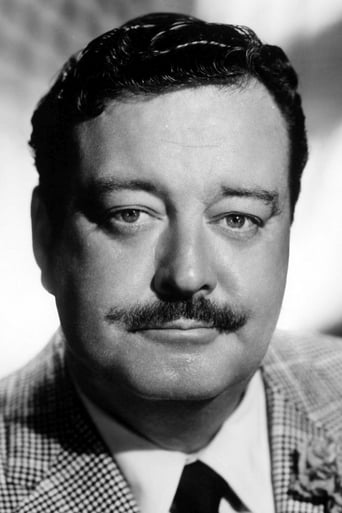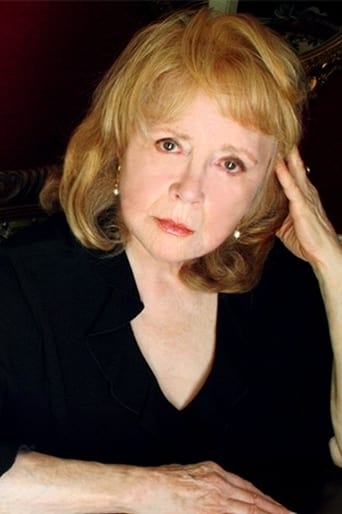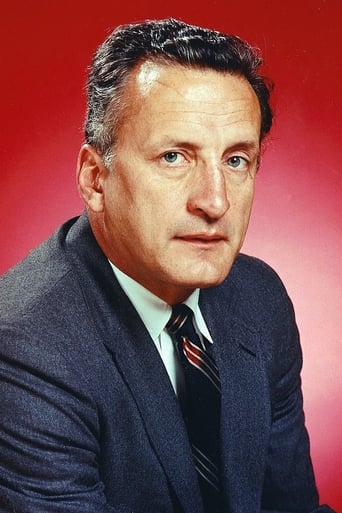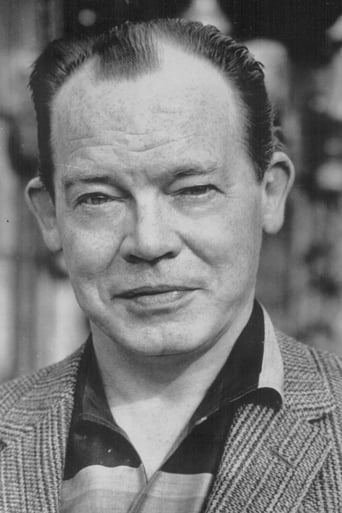BoardChiri
Bad Acting and worse Bad Screenplay
CrawlerChunky
In truth, there is barely enough story here to make a film.
StyleSk8r
At first rather annoying in its heavy emphasis on reenactments, this movie ultimately proves fascinating, simply because the complicated, highly dramatic tale it tells still almost defies belief.
Payno
I think this is a new genre that they're all sort of working their way through it and haven't got all the kinks worked out yet but it's a genre that works for me.
mastro726-1
The kind of a movie that you really don't see much of anymore. Moody character study of many fine performances. How many movies do you see where every actor and actress nails their role ? Though I read somewhere that George C. Scott didn't care for Newman's portrayal Of Felson. Hard to see why. The one and only problem comes towards the end as we are left to guess how Sarah took her own life. I realize the film was made in 1961 but if she slit her wrists we have no way of knowing. Perhaps it was too early yet to show blood and or a razor in her hand ? Or for all we know she could have taken a handful of pills. It is confusing when you first see the movie.
Hitchcoc
I waited about forty years to finally watch this film. It is a tale of both depravity and courage. Paul Newman is a pool hustler. He and his buddy go from pool hall to endless pool hall to scrounge up a few bucks. The thing is that Newman is a really gifted player and one day decides that he's had enough penny ante. The problem is that he is not wise to the ways of gamblers and the bigger hustlers. George C. Scott appears in one of his greatest roles. Piper Laurie is a spooky actress, but pulls off the alcoholic, depressed soul that hooks up with Newman and finds her ship may have sailed. Jackie Gleason really steals every scene. He is probably one of the greatest comic actors of all time, but has been relegated to that place where "TV" people go. As Minnesota Fats, he is formidable but part of the real world. The cinematography of the dark halls is also marvelous and the direction grabs us and holds us.
julietbooth-61428
This film is a proof that Hollywood produced more in the 1950-60s than just colorful musicals. Paul Newman as Fast Eddie Felsen, one of the character that made him famous and for which he could win an Oscar. Piper Laurie as Oscar nominated plays the doomed love interest. Standout performances come from Jackie Gleason, breaking his Ralph Cramden persona to play a hustler, and most notably George C. Scott, as Newman's oily manager.Robert Rossen directs in the same gritty style which works well for the milieu. The movie is very good, it's shot in black and white and has some decent cinematography and acting, despite the hokey script, but it's such a downer that it leaves a bad taste in the mouth when it's over.
lhb000
There are so many great reviews of this amazing film (which easily belongs in the top 50 ever made) but I would like to point out two key scenes that no one seems to have really noticed that each show the incredible artistry of Paul Newman and Robert Rossen.First, the opening scene before the credits role and Kenyon Hopkins' incredible musical score begins when "Fast Eddie" and "Charlie" pull into the small Pennsylvania bar to hustle a few dollars.Next time you watch it check out the smile on Newman's face as he suddenly changes from wobbly drunk to absolutely confident, consummate pool hustler and makes that impossible shot (I've tried it 100 times with no luck). How can a momentary change in an actor's countenance constitute one of the of the great moments in film? I don't know, but Newman manages it here.He just smiles, he manages one of the most classic 5 mile stares ever, and doesn't even appear to notice the outcome. He KNOWS he made the shot before he even made it. Just that one moment is so brilliant every time I watch the film I play it through about 5 times before I go on.And then there is the great ending as the credits role and everyone vacates the pool room, one by one. Kenyon Hopkins should have won some kind of award for the music he provided for just that one scene.The final sax note and strummed guitar chord when the film stops rolling is like the end of a great symphony. A never to be matched ending to one of the greatest masterpieces ever in the history of American film making.






